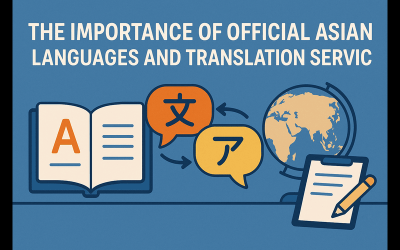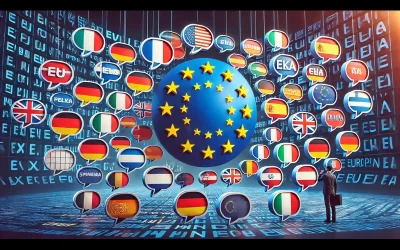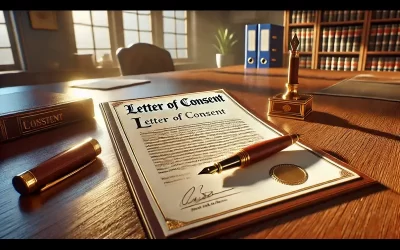Imagine yourself landing your dream job abroad—maybe a marketing position in London, a tech position in Berlin, or an international job with an American startup. You have the experience, expertise, and motivation. But, oh no: your CV is in the wrong language, and word-for-word translation will not suffice. A poor translation CV can cost you opportunities, confuse recruiters, or misrepresent your qualifications.
If you are serious about getting international work, your CV or resume needs to be accurate, well-written, and culturally adapted to suit the country you’re applying to. Let’s dive into what you need to know.
CV vs. Resume: Are They One and the Same?
The majority of job seekers apply the terms “CV” and “resume” interchangeably, though they are different documents used in different parts of the world. You must know which one you must apply for before you translate documents for your job application.
What is a CV?
A Curriculum Vitae (CV) is a detailed document that outlines your entire academic and professional background. It includes education, work experience, research, publications, licenses, and even awards. CVs tend to be longer—two or more pages—and are common in Europe, Asia, and academic circles worldwide. In some countries, a CV even includes additional sections like volunteer work, conference participation, and detailed descriptions of projects or research.
What is a Resume?
A resume is a brief, tailored document (typically one or two pages) highlighting suitable work history, competencies, and credentials. Resumes are standard practice in North America (U.S. & Canada), Australia, and parts of Europe. The goal is to present a quick summary of your qualifications for recruiters, not an entire employment history. Resumes highlight more quantifiable achievements, such as volumes of sales, project success rates, or productivity improvements.
Key Differences:
Length: CVs are longer and more detailed, while resumes are concise and job-specific.
Purpose: CVs highlight your whole career; resumes are for a specific employment.
Usage: CVs dominate in Europe, Asia, and academia; resumes are the king in the U.S., Canada, and business careers. A Swedish CV still might be different from an English CV, but the main format will be the same. Also, even though you’re applying for a job in the U.S., you might need a resume in Spanish, depending on the job.
Fun Fact: CVs (Lebensläufe) in Germany can have a photo, while in the U.S., it is not recommended to include a photo to prevent discrimination during the hiring process. Similarly, in Japan, a handwritten CV (Rirekisho) is still utilized by some companies as a sign of sincerity and dedication.
The Rise of AI in CV Screening: Why Accuracy Matters More Than Ever
Today, your CV isn’t only read by potential employers—it’s actually filtered out first by Applicant Tracking Systems (ATS), sophisticated AI-powered software designed to screen out applicants before human eyes ever see their application. Studies have shown that over 75% of large corporations utilize ATS to scan and sort CVs based on keywords, formatting, and structure. If your translated CV is not what these systems have been coded to recognize, it will never end up on the shortlist. Expert translation is in order here.
For instance, computerized CV scanners are designed to identify standardized job titles, industry-specific terminologies, and standard qualifications. Word-to-word translation might not be able to identify these nuances, and the ranking would be lower. Additionally, date conventions, title of sections, and bullet point arrangements vary across nations, and an inadequately formatted CV may not be read correctly by an ATS at all. Even small differences, such as using British English instead of American English in an American application, can impact your ATS score.
This is where a professional CV translation is not just language switching—it’s about ensuring the translated version complies with industry slang, job-level jargon, and ATS-convenient formatting in the target language. In an AI-first recruitment environment, having a CV that is both immaculately translated and formatted could be the difference between being invited for an interview and being left hanging in cyberspace.
Why Can’t You Just Use Google Translate for CV Translation?
You may be tempted to Google Translate your CV and have it done, but machine translations are likely to produce cringe-worthy mistakes that will undermine your credibility.
Translation Fails Examples:
“Bachelor of Arts” translated in French as “Célibataire des Arts” (which technically means “single in the arts”).
“Marketing Manager” translated in German as “Marketing Geschäftsführer” (which sounds more like a CEO position than a mid-management position).
“Freelancer” in English evolved into “Flâneur” (also a “wanderer” or “loafer”).
Employers will notice awkward sentence structures, poorly aimed language, and layout errors. That’s why a human-translated CV is always the best option.
CV Translation: Traps for Translating a CV (And How to Avoid Them)
Format Differences:
Some countries prefer chronological format, other countries expect a skills-based one. French CVs also contain personal details (like marital status), whereas U.S. resumes never do.
Job Title Confusion:
A “Controller” in America is a financial job, but in France, “Contrôleur” can mean an inspector.
A “Sales Associate” in North America is typically an entry-level retail job, but in the UK, the term can be used for high-level business development jobs.
Industry-Specific Terms:
In France, “Licence” means Bachelor’s Degree, not a license.
“Engineer” in some countries is a legally reserved title that has to be licensed, while in others, it’s used loosely.
Let’s assume you are trying to translate a CV from English to French…
“Assistant” in English can be thought of as an entry-level level, whereas “Assistant Manager” in French means it’s a higher-level position.
“Formation” in English is “Education,” but word-for-word is unnatural-sounding in English.
A professional translation is ensuring accuracy, readability, and cultural adaptation—each critical to making a great impression.
Cultural Differences That Will Make or Break Your CV
What is acceptable in a CV or resume differs wildly from country to country—and ignoring these differences can lose you the job before anyone has even read about your experience. For instance, in Japan, it’s common practice to send in your CV by hand and list your blood type (said to determine personality!). On the other hand, including age, marital status, or a picture on your American resume could raise an eyebrow due to extremely strict anti-discrimination legislation. “Travelling” and “playing the guitar” hobbies are valued as a way to bring out personality in Spain, but Swedish recruiting agents like the utilitarian, strictly professional format. Even the use of color is differently perceived: a touch of flair may impress a Brazilian hiring manager, but appear amateurish in Germany. Such unconscious cultural cues are as important as verbal accuracy, and skilled professionals who are familiar with local HR norms and localization services can help you align your CV with these requirements—making you not only readable, but hireable.
Need your CV translated into English, German, or French?
Need your CV translated into English, German, or French? Our experts are ready to help.
Get a Quote
Real Facts: How Many People Are Applying for International Jobs with CV Translation?
Remote work is more competitive than ever before:
In 2023, 54% of remote job applications in the U.S. came from foreign candidates.
More than 1.2 million applied for just 17,000 UK graduate jobs in 2023.
English is the secret to global careers:
Job postings in English get 3x more applicants than job postings in the local language in non-English-speaking countries.
Over 1.5 billion individuals worldwide are learning English—many to improve career prospects.
Multilingual employees get paid more:
One study found that multilingual employees receive 5-20% higher pay than monolingual employees.
With such a competitive job market, a professionally translated CV sets you apart.
What the Hiring Manager Is Searching for in a CV or Resume
– Hiring managers take 6-7 seconds to scan a CV before determining whether they will read it further.
– 50% more interview callbacks are received by CVs that have correct formatting, appropriate keywords, and native language.
– A single translation mistake is enough to get your application rejected outright.
Professional CV translation explains your qualifications easily, with dignity, and in earnest consideration.
Why It’s Worth Spending on a Professional CV Translation
– Better job prospects: Recruiters take your application seriously.
– No facepalm mistakes: Your qualifications are accurate and readable.
– Industry expertise: Translators translate words as per your profession.
Protranslate guarantees expert CV translations by native speakers with expertise in your industry. Job hunting in Germany, the UK, the U.S., or another country? We ensure your CV is top-notch.
Ready to land your dream job? Have us translate your CV today!
 Rana Maalouf
Rana Maalouf

